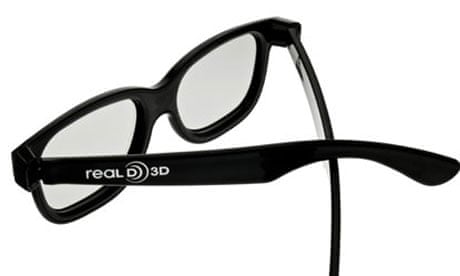When Alice in Wonderland screened in cinemas earlier this year it was estimated that around 10m pairs of plastic 3D glasses were distributed worldwide. A similar number had been sent out when Avatar was released a few months earlier; if the notional 42.1m pairs of glasses used to watch the film had been laid end-to-end, they would form a line 3,987 miles long. So, is this ever-growing number of glasses a potential environmental menace?
Cineworld, which operates 77 cinemas across the UK, admits that "due to the success of 3D, the volume of glasses that require disposal has become an increasing concern". It says it plans to reduce the price of a ticket to any customer recycling their glasses. From today customers at Odeon cinemas will buy glasses for £1 but get a discount – the Odeon doesn't say how much – each time the glasses are reused.
Meanwhile, Vue Cinemas, with 69 cineplexes across the UK, has large recycling bins in its cinemas. "The glasses are taken to be cleaned and repackaged," says a spokesman. "Any that are damaged go to plastic recycling and are made into pellets, for use in the plastics industry."
Imax, the Canadian high-definition cinema corporation, boasts its glasses can be washed up to 500 times, but, in reality, how many times are 3D glasses recycled? Vue says the average pair has "around three or four uses". With 3D films expected to account for 25-30% of box office receipts in 2010, it says it will "use around 7m pairs of 3D glasses in 2010". That's a formidable mountain of scratched glasses queueing up to be pelletised.
However, one Californian firm thinks it might have the answer. Cereplast is to distribute "compostable" glasses made from plant-based plastics which biodegrade within six months. That sounds good, but glasses made from popcorn would be better: we could eat them when the credits start to roll.

Comments (…)
Sign in or create your Guardian account to join the discussion